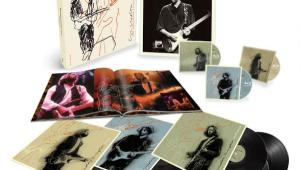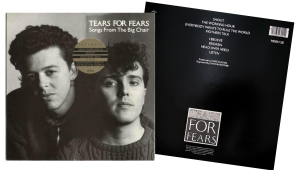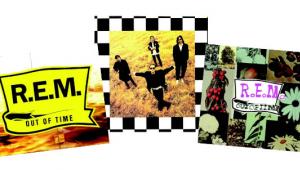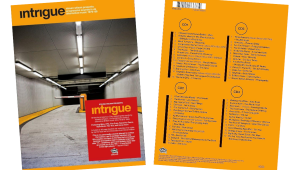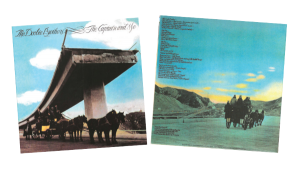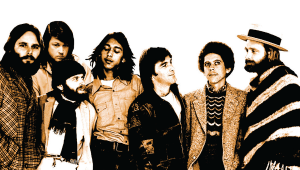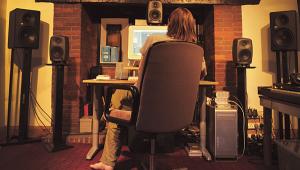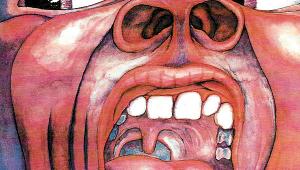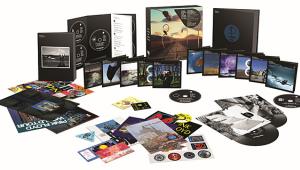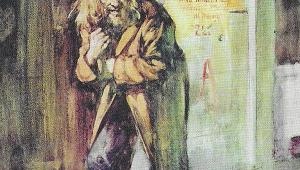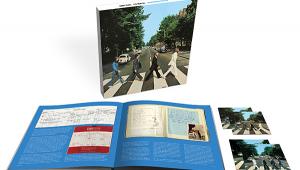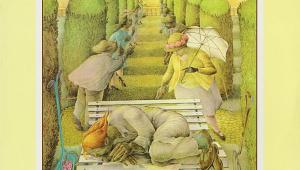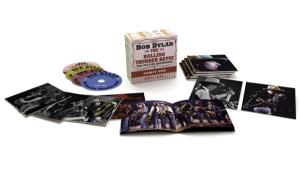CD Review: Robin Trower

| Bridge of Sighs: 2007 Remaster Chysalis/Capitol/EMI Music ••••½ Sound ••••½ Extras •½ |
It's one of the great understatements in the history of rock: "Special thanks to Matthew and Geoff for making it sound so good." That's Robin Trower in 1974, thanking producer Matthew Fisher and engineer Geoff Emerick for, specifically, making his instrument blossom on one of the best guitar albums ever recorded, Bridge of Sighs.
Today, in his liner notes for the freshly remastered edition, Trower gives Emerick the lion's share of the credit, saying: "We were very fortunate to get him." Trower recalls how Emerick captured the sound from different locations in the studio - which Geoff confirmed when I spoke with him last year (see interview). "So there was a lot of the room's ambience in that sound," Geoff said. "And on vinyl especially, you can hear that rich tonal quality from the master. On CD, you can't hear the depth of the guitar. I've spoken with Robin about this, and I know he's got problems with it."
Apparently, those problems were enough to spur Trower to get involved with this new edition. "Remastered by Peter Mew [the senior pop remastering engineer] at Abbey Road," says the booklet, with "thanks to Robin Trower for his remastering guidance." Capitol is casually referring to this release as an "expanded" edition with live bonus tracks - but be sure you see the 2007 date when you buy, because the previous release was officially identified in the jewel-box gutter as an "Expanded Edition," with different live bonuses. Like the new CD, that 1999 release was digitally remastered from the original master tapes, but it was done by Evren Göknar at Capitol Mastering.
To fully gauge the success of the new CD, I performed not just an A/B nor an A/B/C but an A/B/C/D comparison: the original 1974 vinyl LP, the uncredited remaster for Mobile Fidelity Sound Lab's 1996 24kt-gold-plated UltraDisc II CD, the 1999 Chrysalis/Capitol CD, and the new edition under review here.
First, we can eliminate the MoFi right away, as it exhibits the kind of washy, slurred bass that was often typical of the label's releases back then. Simply put, the music doesn't pop.
The 1999 CD, on the other hand, pops too much - by which I mean that the remastering is a bit hot and loud. This tends to make the bass seem bolder, but at what expense?
Put on the 2007 CD, and the answer is clear: Whereas the new remaster improves both the low and high ends, the 1999 edition was often dominated by the bass. Indeed, of the three CD versions on hand, the new one is the only one that re-creates the original balance between Trower's guitar, James Dewar's bass, and Reg Isidore's drums.
That balance, naturally, is weighted in Trower's favor; this is a guitar album, after all. The detail of his interlocking parts on "In This Place," the buzz of his solo in the second half of "Too Rolling Stoned," the purity of his fills on "About to Begin" - all come across vividly on the new CD. Meanwhile, the bass is firm enough to allow you to hear bass strings.
- Log in or register to post comments

